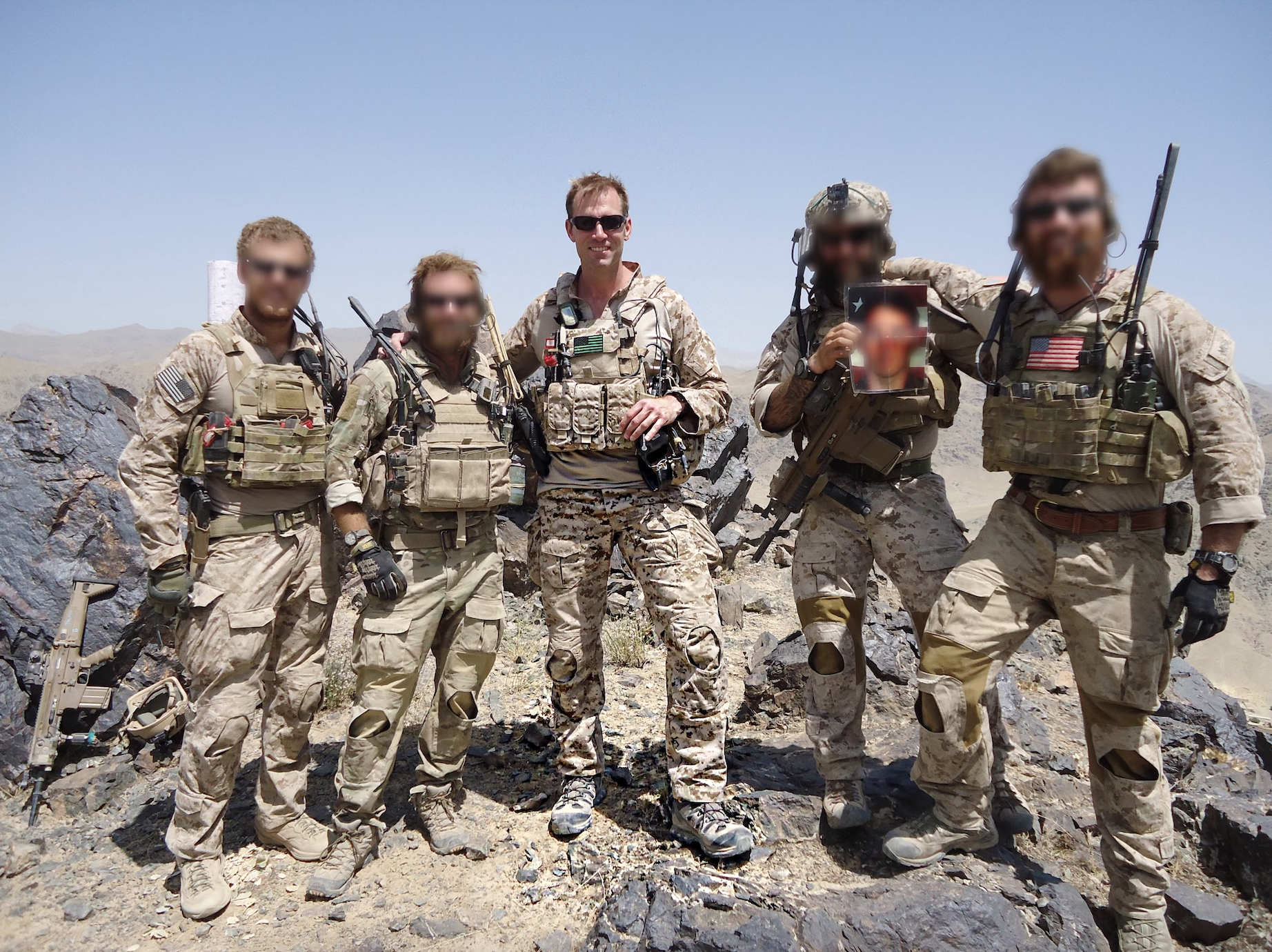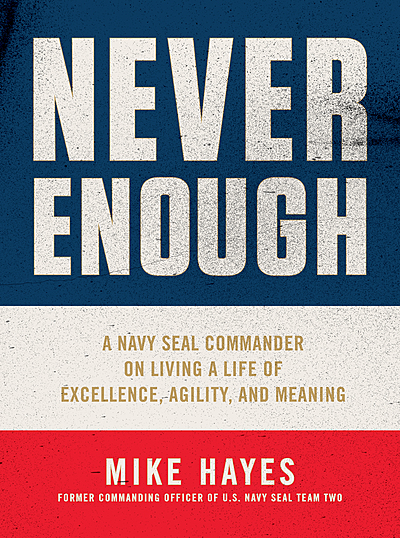I’ve spent my life at the intersection of career and purpose. At twenty-one I started my career as in the Navy SEALs and retired as the Commander of SEAL Team TWO. In that period, I also had the privilege of serving on the National Security Council for Presidents George W. Bush and Barack Obama. After retiring from public service, I moved to the private sector, working in the leadership teams and boardrooms of multibillion-dollar companies, including my current role as Chief Operating Officer of the technology innovator, VMware.
The structure of today’s workplace makes it hard- but by no means impossible- to find real and deep purpose in what we do. We can get stuck if we don’t reflect on what drives us, what fulfills us, and what brings meaning in our lives. But if we can identify what moves us as individuals, we are then in far better positions to make positive impact in the world around us. Life is ultimately about giving more than we take- and we can best give when our own foundations are solid.
I hope you enjoy these pieces, and that they inspire self-reflection and new thinking about your own day-to-day while you pursue your larger life goals.
A Series on Finding Meaning
● Success is Highly Personal
● No Matter What You Believe in, Believe in Something
● Not Much Matters Without the Meaning That Comes From our Relationships
● It’s Easy to be Complacent. It’s Harder to Figure out the Work We Need to Do.
● The Hard Things are Opportunities If You Let Them Be
As a White House Fellow, one of the privileges I enjoyed was getting to meet and be mentored by national leaders—from the public, nonprofit, and private sectors. I had the opportunity to hear from so many successful men and women about how they had ended up in their positions, and what wisdom they wanted to pass down to the next generation. The common thread, despite the very different paths these professionals had taken, was that no one had been able to effectively plan their careers over the long term. They excelled at what they were doing, and opportunities—whether expected or unexpected—found them, or the desire for new opportunities developed within them. If you say that you know what you are going to be doing in five, ten, or fifteen years, I say you’re either lying to yourself or you’re going to be proven wrong.
I’ve heard lots of times that my own résumé looks awfully strange, between the SEALs and the White House and now the business world. The thread that ties it all together is that I’ve leaned into the hardest situations I could find, rolled my sleeves up, and tried to learn and contribute as well as I could. I went to Bridgewater because it had the smartest people I could find, and I knew I would learn an incredible amount. I also knew that my past experiences would matter there, and would truly help the company, because Bridgewater is constantly seeking fresh ideas.
After Bridgewater, I moved to Cognizant and had the great privilege of working with Frank D’Souza, who became a close and trusted friend. Moving to Cognizant, I had to draw on my experiences to navigate areas that were at first entirely new to me, from dealing with an activist investor—a true crisis for a public company—to working on a variety of initiatives to take the company to the next level of growth. When I started, I felt like I was constantly learning something new, but at the same time using my past experiences to make important contributions to the firm’s success.
I’ve learned over time that organizations already know what they know and are full of subject matter experts in whatever it is that they do. The thing that is often missing is external perspective and the ability to bring in fresh ideas from outside the business that can potentially grow top-line revenue or help the company cut costs and increase profit. While I didn’t grow up as a technologist, leading a large group of people serving clients, and helping them run and change their business is really just a test of vision, leadership, and trust. Good processes and good decision- making are effective no matter the context, and finding success in one role takes pretty much the same skills as finding success in any other role. It’s all about who you are and how you approach the world; the details can be learned.
To that end: Worry first about building the foundation of your life, and build the walls and the roof later. Grow foundational skills, and they will help you no matter where you find yourself. Do amazing work, in whatever capacity you can, and opportunities will follow. Too often, we think about life as a zero-sum game, with winners and losers. But it’s not. We can all be winners. We can all lift each other up. There are roles for all of us, and we can create our own opportunities if we can’t find the right one out there. Achievement is not limited to a small group of people. The more people who succeed, the more people available to create a world ready for even more success.
Besides, we change. The choices we make now aren’t necessarily ones that we have to live with forever. The more you try, the more you know, and the more you learn about yourself and what drives you. We can be great at something, and then decide to make a shift. We can reinvent ourselves, change careers, change our lives. Because we can’t know or fully plan the future, it’s incumbent on us to do what we can all the time, not just wait until all the pieces are in place. All the pieces will never be in place. Things don’t get done unless we actually start to do them.
I’ve interviewed more than a thousand people for important, high-paying, high-impact jobs. I’ve talked them through their processes for figuring out whether to make the move. I tell them to be honest with themselves about the person they are, not the person they wish they could be. A role can sound perfect on paper, but if it doesn’t fit, you can’t force it. We have to respect the voices inside our hearts, which rarely lead us astray. We have to understand what gives us energy—not just what we’re good at.
I started to figure some of this out back in college at Holy Cross. When you think about a Jesuit liberal arts education, the goal is to figure out who (not what) you are going to be in life. You try things out along the way, test what you like, and see what sticks. People are rarely shy with advice — this entire book is no exception—but everyone who offers advice has their own biases. Recognize these biases (including mine), and take what you can from what people tell you. Apply what fits and discard the rest. Over time, you figure out who you are, what drives you, and the change you want to bring to the world. You figure out what it means to you to succeed. Because success means something different to each of us, and it’s often very personal.


You will find more incredible advice, insights, stories, and inspiration in Never Enough: A Navy SEAL Commander on living a life of Excellence, Agility, and Meaning.



